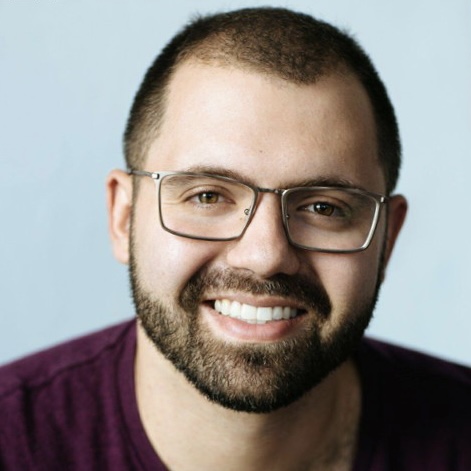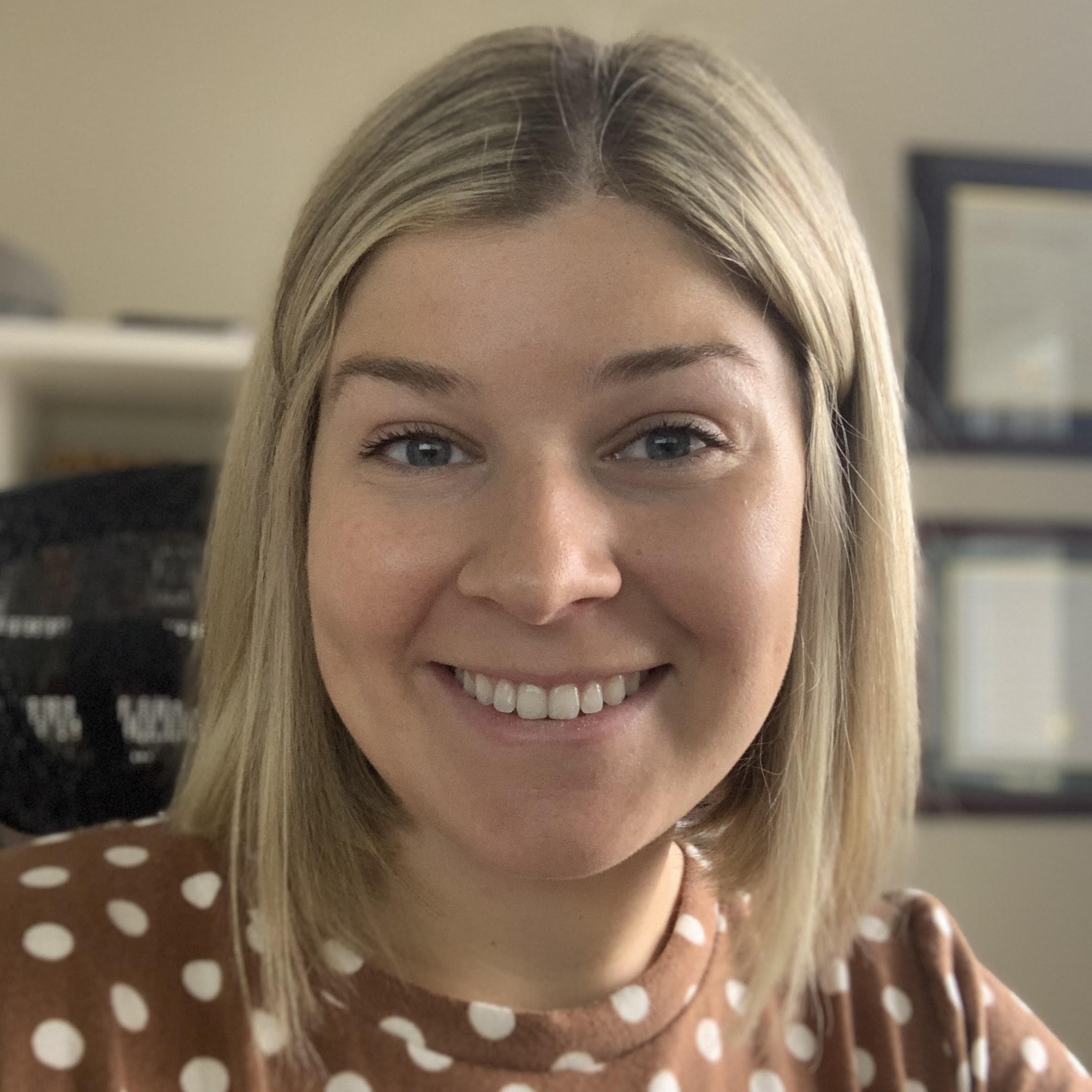Mentorship Month Profiles
January is Mentorship Month!
January 20, 2023
Fostering mentorship between alumni and students builds connection within the Trent community. Mentors impart unique skills and guidance for students and recent grads in their shared fields, while mentees offer the chance to build relationships, develop the next generation of professionals and share distinctive perspectives.
Whether you are looking for work in your field or are an experienced professional, mentorship and mentoring relationships provide career-advancing opportunities, professional advancement, and meaningful connections at all stages of your career.
Many alumni fondly remember their mentors at Trent and have been inspired to become mentors because of crucial individuals and moments they experienced as students.
For more information on mentoring at Trent, visit our Life After Trent page.
Throughout January, we will be profiling a few Trent alum who have been inspired to become valuable mentors in their communities. Watch our social media feeds for more.
Facebook: Trent University Alumni Association
LinkedIn: Trent University Alumni Association
Instagram: trent_alumni
Iyanuoluwa Akinrinola ’12
 For Iyanuoluwa Akinrinola ’12, mentorship is about the journey. Iyanuoluwa came to Trent University to obtain a Bachelor of Education after key mentors had advised her to “examine over her life” and perhaps not pursue the law degree that she was heading towards. Instead, as any influential mentor does, Iyanuoluwa was encouraged to reflect on her goals and passions, which led her to teaching.
For Iyanuoluwa Akinrinola ’12, mentorship is about the journey. Iyanuoluwa came to Trent University to obtain a Bachelor of Education after key mentors had advised her to “examine over her life” and perhaps not pursue the law degree that she was heading towards. Instead, as any influential mentor does, Iyanuoluwa was encouraged to reflect on her goals and passions, which led her to teaching.
As a mentor herself, Iyanuoluwa asks a critical question of her mentees: “What is your why?”
When she asked this question to herself, Iyanuoluwa saw her volunteer experience in schools as a child, her work in transitioning students from elementary school to high school, and her profound desire to educate, learn, and build community. Trent’s Bachelor of Education degree became her goal, as their application of learning and approach to Indigenous studies aligned with her understandings of representation, diversity, and respectful education.
Now, after pivoting in her role as an educator, Iyanuoluwa returned to Trent and has found a mentor in her Ph.D. supervisor. Centering Black Representation in K-12 education utilizing Indigenous ways of knowing and learning fuels her Ph.D. at Trent, where she analyzes Black and Indigenous representation in K-12 curriculum.
Reframing her teaching career, Iyanuoluwa once again asked herself a guiding question: “What do I have to offer?” and her voice of mentorship was born.
Iyanuoluwa focuses on mentoring through four aspects of life: intentional living, spirituality, emotional well-being and academics. She has mentored a variety of individuals; each of whom were seeking direction or clarity in their lives but lacking knowledge or skills to make these crucial changes.
Iyanuoluwa sees mentorship as a journey that can only be completed through devotion to another person’s success. She identifies that being a mentor is not about cultivating a friendship but is instead about using goal setting and time management o help determine mentees’ areas for development, and future trajectory.
Iyanuoluwa’s roles as both a mentor and a mentee are woven into her understanding of education. When she reflects on her past mentors, many are teachers and educators who have pushed her forward into her successes. When she mentors, Iyanuoluwa hones in on academic outcomes; as a former teacher, Iyanuoluwa has a concrete understanding of the critical function learning plays in creating steppingstones for the rest of a person’s life.
Back at Trent, Iyanuoluwa appreciates how the University prioritizes “telling the untold stories,” and feels encouraged to consider viewpoints outside of her own. She is particularly impressed by how Trent values its Indigenous program and creates opportunities for students to be engaged in understanding the impact of the past and present.
Iyanuoluwa’s mentorship journey is best embodied in her advice for future mentors. When considering mentorship, Iyanuoluwa advises vetting your mentees to ensure you are the correct support for them, emphasizes the importance of reaching out to people, and acknowledges that the journey is not a straight line. Iyanuoluwa takes the road “however it winds.”
Lucas DeLuca '12
 Lucas DeLuca '12 believes trust is central to the transformative process of mentorship. Having trust in yourself and your mentee takes time to develop, but through feedback and, at times, tough love, individuals can achieve extensive growth. Lucas, having been both a mentor and a mentee, speaks to the challenges of scaffolding people to success; his story of mentorship credits the key influence of important people in his life with his early career development.
Lucas DeLuca '12 believes trust is central to the transformative process of mentorship. Having trust in yourself and your mentee takes time to develop, but through feedback and, at times, tough love, individuals can achieve extensive growth. Lucas, having been both a mentor and a mentee, speaks to the challenges of scaffolding people to success; his story of mentorship credits the key influence of important people in his life with his early career development.
During his Bachelor of Arts in Cultural Studies/Critical Theory and Analysis, and later during his Bachelor of Education at Trent, Lucas was encouraged to pursue his passion for theatre by faculty member Luigi Iannacci. Lucus invested in the Anne Shirley Theatre Company, which gave him the confidence to start his own company in 2016, Amber Coast Theatrical. He used his company to empower underprivileged youth in Peterborough and encourage collaboration, inclusivity and learning.
He acknowledges that he had an impact in the community and still keeps in touch with several of the students he mentored during this time.
Lucas knows that blooming into the person he is today took time and effort from himself and his mentors. In his second year, Lucus remembers needing help from Student Accessibility Services at Trent to modify course delivery after undergoing surgery. As a disability advocate, he understands the importance of creating support systems in schools for students with disabilities; today, as the Director of Community Engagement with the Amputee Coalition, Lucas has aided an unmeasurable number of individuals experiencing the same challenges he faced. Lucas believes his journey has come full circle, as he now supports individuals in ways similar to how Trent supported him.
After completing his B.Ed., Lucas was encouraged by his mentors to apply for a Master's program in Critical Disability Studies at York University. Lucas loved the program but maintained his connections with his mentors at Trent.
He always remembered the moments Trent created during his time as a student: "It takes an army to create these opportunities. Mentorship, collaboration, and networking go hand in hand – and they must be fostered."
Trent broadened Lucas' horizons and, coupled with the roots he planted in the Peterborough community, allowed him to bring his experiences to his role as the Director of Disability Support Services at Columbia Basin College, and later as a Peer Mentor and Director of Community Engagement at the Amputee Coalition. "The community that exists in Peterborough is one that lends itself to collaboration. Trent offers that 'get outside your comfort zone' mentality, but it's sense of community in unrivalled."
Lucas shares an approach similar to most impactful mentors: "Everyone has something incredible to offer to someone else. Be seen by one person, and create a culture of proactive and positive feedback."
Rebecca Doris (nee Hubble) ’12
 For Rebecca Doris (nee Hubble) ’12, Trent University is part of her family history. While she attended Peter Gzowski College as a political studies student, her family had a connection to almost every college: her mother attended Otonabee College, her father, Champlain College, her grandmother, Julian Blackburn College, her aunt Peter Robinson College, and her cousin, following in Rebecca’s footsteps, is a 3rd-year student also at Gzowski College.
For Rebecca Doris (nee Hubble) ’12, Trent University is part of her family history. While she attended Peter Gzowski College as a political studies student, her family had a connection to almost every college: her mother attended Otonabee College, her father, Champlain College, her grandmother, Julian Blackburn College, her aunt Peter Robinson College, and her cousin, following in Rebecca’s footsteps, is a 3rd-year student also at Gzowski College.
Rebecca says she always pictured herself going to Trent; beyond familial college ties, her grandfather Professor Emeritus (initially at Traill College and later, at Lady Eaton College) has worked in the Chemistry department since 1965. Her special relationship with Trent sparked her commitment to caring for the University culture through an incredible gift – mentorship.
Rebecca believes that when you become a senior student with more experience, you naturally come into mentorship roles with younger students. While she was happy to stay close to her family in Peterborough, Rebecca recognized that having an older student mentor can be highly influential for students who are not as geographically close to their family or do not have other people in their life to ask for advice.
Part of her investment in the Trent mentality comes as a result of the University’s unique opportunities. In her fourth year, Rebecca was part of the Life After Trent mentorship program and matched with a mentor in downtown Toronto. Rebecca can easily recount the many lessons her mentor taught her, including helping with her decision to apply to graduate studies programs and providing career guidance. Another mentor that Rebecca built a relationship with through the program provided her with a copy of his resume. He even offered to show her the different steps to move from a graduate student to a career in senior-level public service. Rebecca believes that mentorship close to graduation is particularly valuable, as it provides direction at an often uncertain time in a young person’s life.
Rebecca used the skills and tools taught to her by mentors to gain success in a Master of Public Administration program at Queens University. Since then she has worked at all three levels of government. She relocated to Peterborough in 2022 and currently works as a Policy Analyst at Natural Resources Canada. Even today Rebecca still believes in the power of mentorship.
As a proud Trent Alumni, she is happy to continue advocating for Trent’s mentorship opportunities and sees an instant, distinct connection between Trent students and alumni.
When asked about the most influential advice she had received from a mentor, she answered instinctively: “A good mentor hopes you will move on. A great mentor knows that you will.”